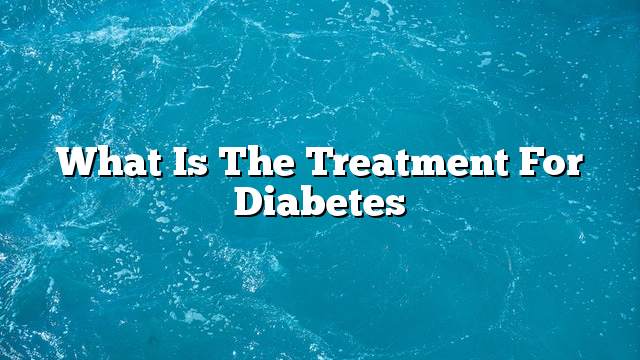Glucose is the main source of energy in the body. Blood sugar is regulated to reach or maintain the internal balance of the body. The process of stabilizing or balancing blood sugar is controlled by a group of hormones produced by a group of hormones such as the adrenal gland and pancreas. It is obvious that sugar or glucose is stored in the muscles and liver in the form of glycogen (animal starch) and resort to the body in cases of illness and fasting.
Insulin is the primary hormone regulating the blood sugar level, which regulates the process of transferring glucose from the blood to most of the body’s cells, especially fat cells and muscle cells.
Causes of diabetes
- Genetic causes (genes).
- Inflammation and psychological pressure.
- Food style.
- There is a defect in the pancreas gland.
- Non-response of the body to deal with insulin.
- Overweight.
- Physical inactivity.
- Old age, as the higher the age, the greater the risk of the disease.
- Polycystic ovaries.
- In case of hypertension.
- In the case of hypercholesterolemia.
- In the case of a high triglyceride triglycerides, the glyceride thaate is one of the fats in the blood.
- Female infection with polycystic ovary syndrome.
Symptoms of diabetes
- Increase the feeling of thirst.
- Increased urination.
- Feeling very tired.
- Weight loss.
- Increase appetite for food.
- Blurred vision.
- Slow wound healing.
Note: All of the above symptoms are proportionately proportional to the concentration of sugar or glucose in the blood, meaning that the severity of these symptoms decreases when the concentration of sugar in the blood.
How to diagnose diabetes
Diagnosis of diabetes through the work of laboratory tests, such as:
- Random measurement of glucose level in the blood.
- Measure the level of blood glucose during fasting.
- Measure blood glucose level after 2 hours of intake. A gram of sugar is dissolved in a quantity of water.
Complications of diabetes
The disease has short short-term complications and long-term complications such as causing damage to the eyes and kidneys and can lead to disabilities and death.
‘ Treatment of blood sugar ‘
- Exercise.
- Keep healthy and balanced food.
- Follow-up of laboratory tests and follow-up blood glucose level.
- Insulin.
- Take oral medications.
- Pancreas are used as a last resort to treat this disease.
